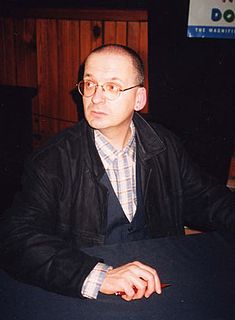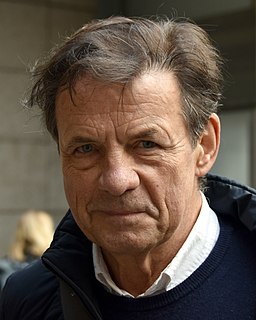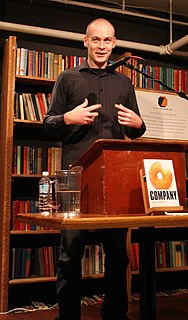A Quote by Roddy Doyle
Do not place a photograph of your favourite author on your desk, especially if the author is one of the famous ones who committed suicide.
Related Quotes
Reading a book should be a conversation between you and the author. Presumably he knows more about the subject than you do; if not, you probably should not be bothering with his book. But understanding is a two-way operation; the learner has to question himself and question the teacher, once he understands what the teacher is saying. Marking a book is literally an expression of your differences or your agreements with the author. It is the highest respect you can pay him.
You’ve thrown down the gauntlet. You’ve brought my wrath down upon your house. Now, to prove that I exist I must kill you. As the child outlives the father, so must the character bury the author. If you are, in fact, my continuing author, then killing you will end my existence as well. Small loss. Such a life, as your puppet, is not worth living. But… If I destroy you and your dreck script, and I still exist… then my existence will be glorious, for I will become my own master.
Reading with an eye towards metaphor allows us to become the person we’re reading about, while reading about them. That’s why there is symbols in books and why your English teacher deserves your attention. Ultimately, it doesn’t matter if the author intended the symbol to be there because the job of reading is not to understand the author’s intent. The job of reading is to use stories as a way into seeing other people as a we ourselves.
Someone from the Internet Writing Workshop sent me a link to the Gender Genie, where you paste in a section of text and it uses an algorithm to detect whether the author is male or female. Or, if you're an author, you can tell whether you're really nailing your opposite-sex characters. I mean, nailing their dialog.




































